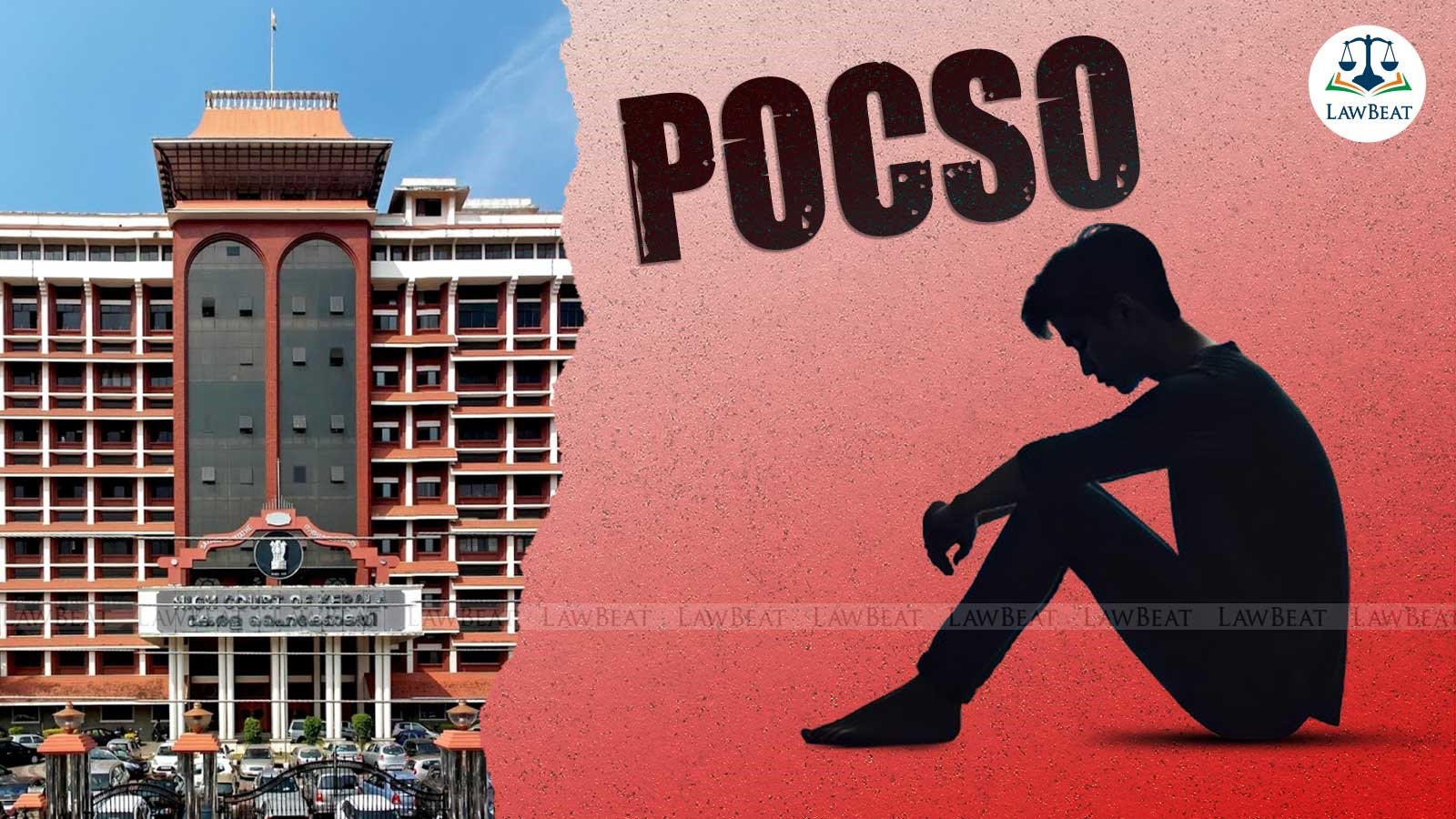Engaging in Sexual Intercourse in Front of a Minor Amounts to Sexual Harassment : Kerala HC Refuses to Quash POCSO Case

The court noted that “when a person exhibits naked body to a child, the same is an act intending to commit sexual harassment upon a child,” therefore, a prima facie case is made out
The Kerala High Court has held that getting naked and engaging in sexual intercourse in front of a minor constitutes sexual harassment under the Protection of Children from Sexual Offences (POCSO) Act. The court made the observation while refusing to quash the case of the petitioners and directing them to go to trial.
The court, presided over by Justice A. Badharudeen, was hearing a case involving Fisal Khan, a 42-year-old man, and the mother of a 16-year-old boy. The petitioners were accused of engaging in sexual intercourse in presence of the minor at a Lodge in Thiruvananthapuram on February 8, 2021. The minor was allegedly sent to purchase articles, and upon returning, witnessed the act. The petitioner then physically abused the minor, catching hold of his neck, beating his cheek, and kicking him.
The petitioners were charged with offences under Sections 294(b) (uttering obscene words or songs in public place), 341 (punishment for wrongful confinement), 323 (punishment for voluntarily causing hurt), and 34 (common intention) of the Indian Penal Code (IPC), along with Section 12 (punishment for sexual harassment) read with Section 11(i) (sexual harassment by exhibiting body part or object to child) of the POCSO Act, and Section 75 of the Juvenile Justice (Care and Protection of Children) Act. The petitioner's counsel, Advocate Liu M.P., sought to have the charges under Sections 294(b) and 341 of the IPC, as well as Section 75 of the Juvenile Justice Act, quashed. However, the Public Prosecutor M.P. Prasanth, argued that the actions constituted sexual harassment as defined under Section 11(i) read with Section 12 of the POCSO Act.
The court delved into the definition of sexual harassment under Section 11(i) of the POCSO Act which provides that :
“A person is said to commit sexual harassment upon a child when such person with sexual intent,— (i) utters any word or makes any sound, or makes any gesture or exhibits any object or part of body with the intention that such word or sound shall be heard, or such gesture or object or part of body shall be seen by the child;”
On account of the above definition, the court observed that “an act intending to commit sexual harassment upon a child and therefore, the offence punishable under Section 11(i) read with 12 of the POCSO Act would attract. In this case, the allegation is that the accused persons engaged in sexual intercourse after being naked, even without locking the room and allowed the entry of the minor in the room, so that the minor could see the same. Thus, prima facie, the allegation as to commission of offence punishable under Section 11(i) read with 12 of the POCSO Act, as against the petitioner in this case is made out.”
Regarding the allegations under Section 294(b) of the IPC, the court observed that the provision penalises anyone who, to the annoyance of others, sings, recites, or utters any obscene song, ballad, or words in or near a public place. However, the prosecution materials in the present case did not indicate that the minor was abused in or near any public place, nor did they specify any words used to abuse him. Similarly, the prosecution records did not support a case of wrongful confinement under Section 341 of the IPC. Therefore, the court concluded that, prima facie, the offences punishable under Sections 294(b) and 341 of the IPC were not established.
The court further noted that Section 75 of the Juvenile Justice Act requires taking actual charge of or control over a child and assaulting, abandoning, abusing, exposing, or willfully neglecting the child, or causing the child to be subjected to such treatment, in a manner likely to cause unnecessary mental or physical suffering. In this case, the court stated that this provision would not apply to the petitioner man, who did not have such control, but it might apply to the victim’s mother, who did.
In light of these observations, the court partially allowed the petition. It quashed the criminal proceedings against the petitioner for offences under Sections 294(b), 341 read with 34 of the IPC, and Section 75 of the Juvenile Justice Act. However, the court dismissed the plea to quash charges under Sections 323 read with 34 of the IPC and Section 11(i) read with 12 of the POCSO Act.
Cause Title: Fisal Khan v State of Kerala [CRL.MC NO. 3553 OF 2022]
